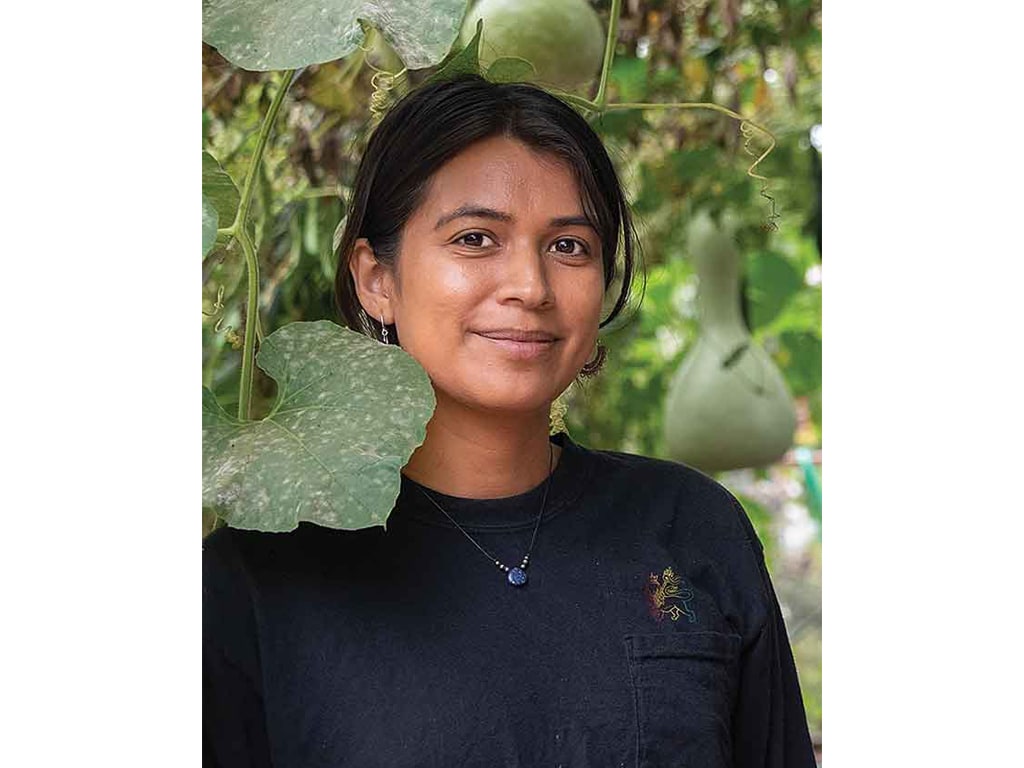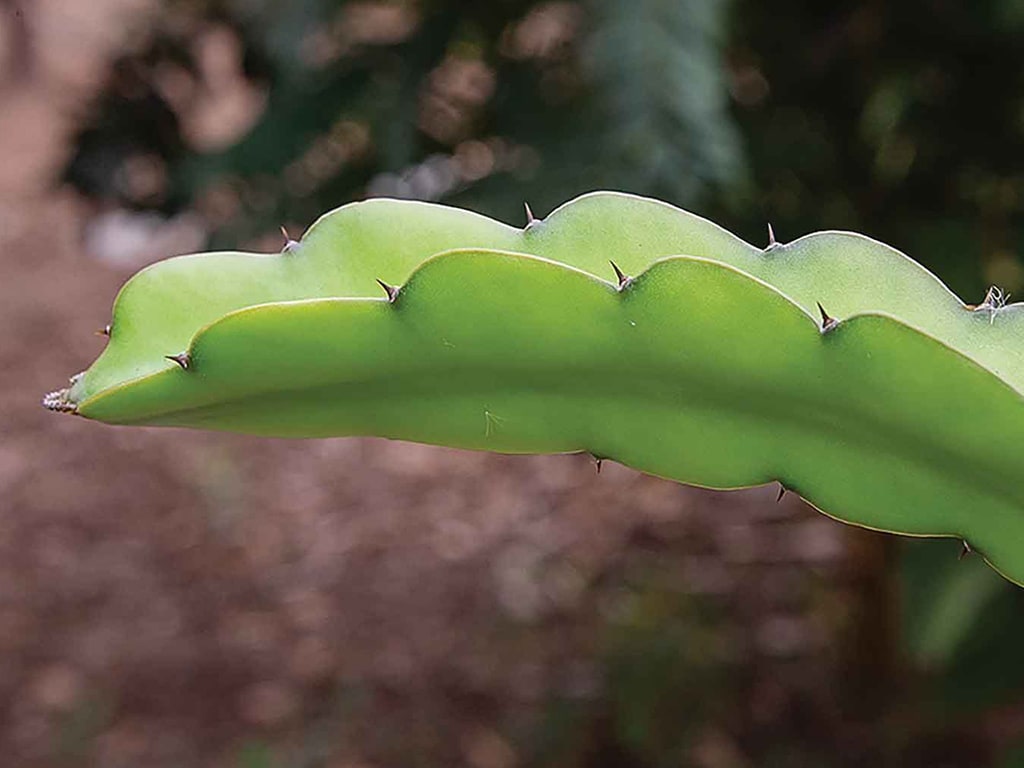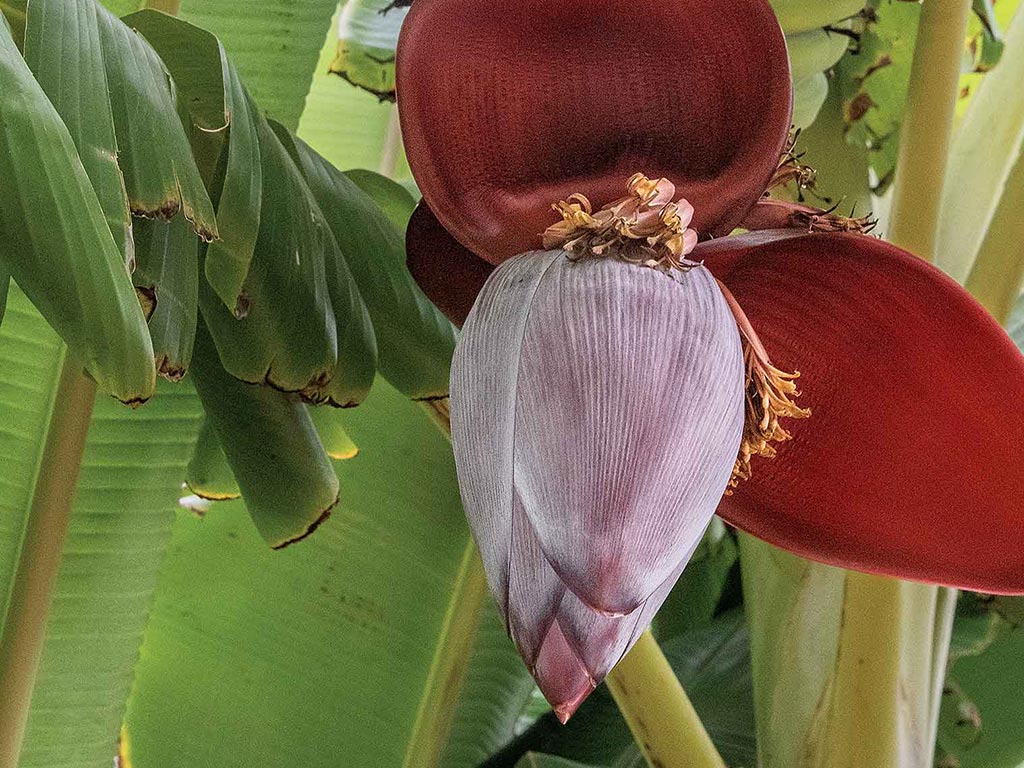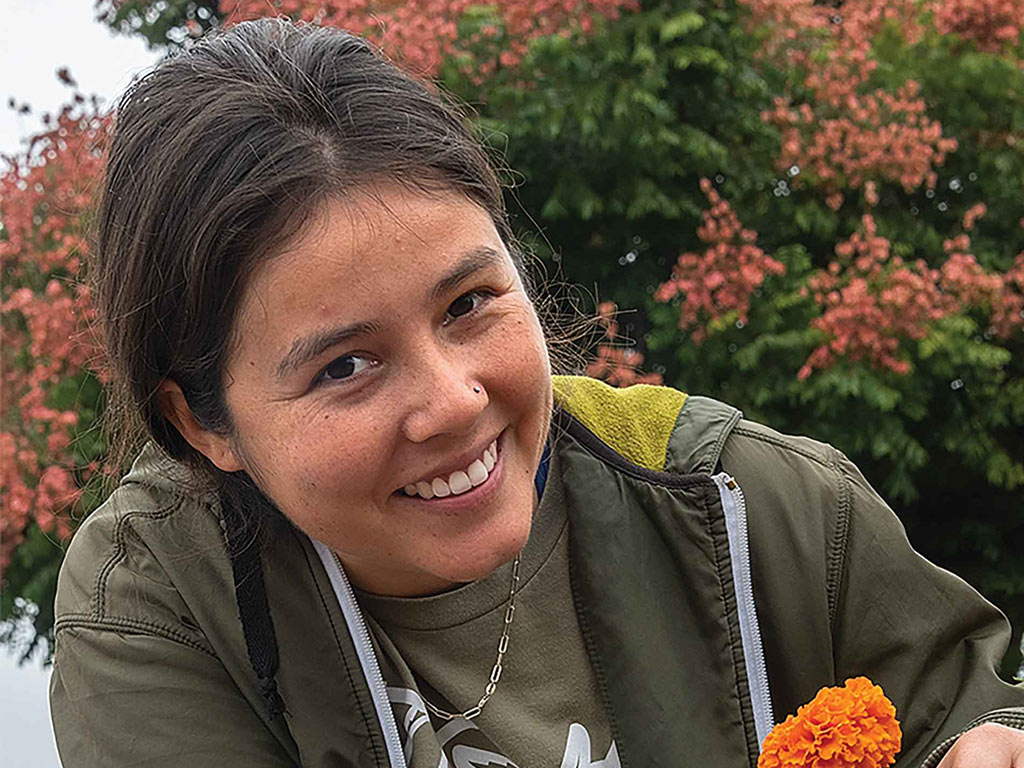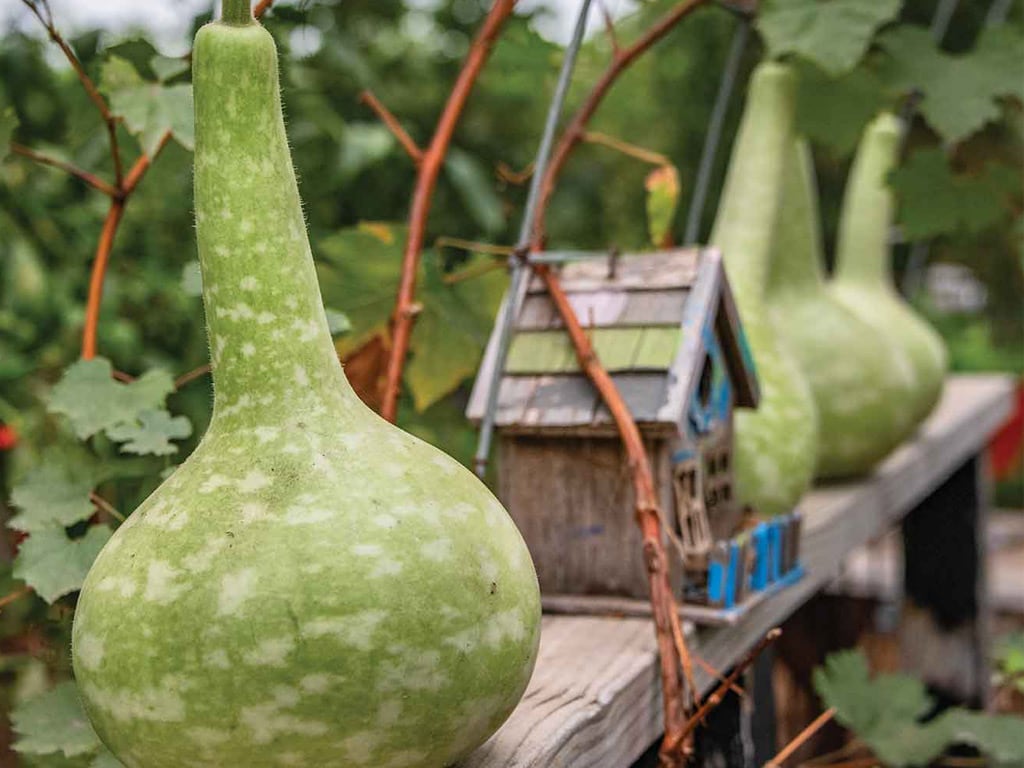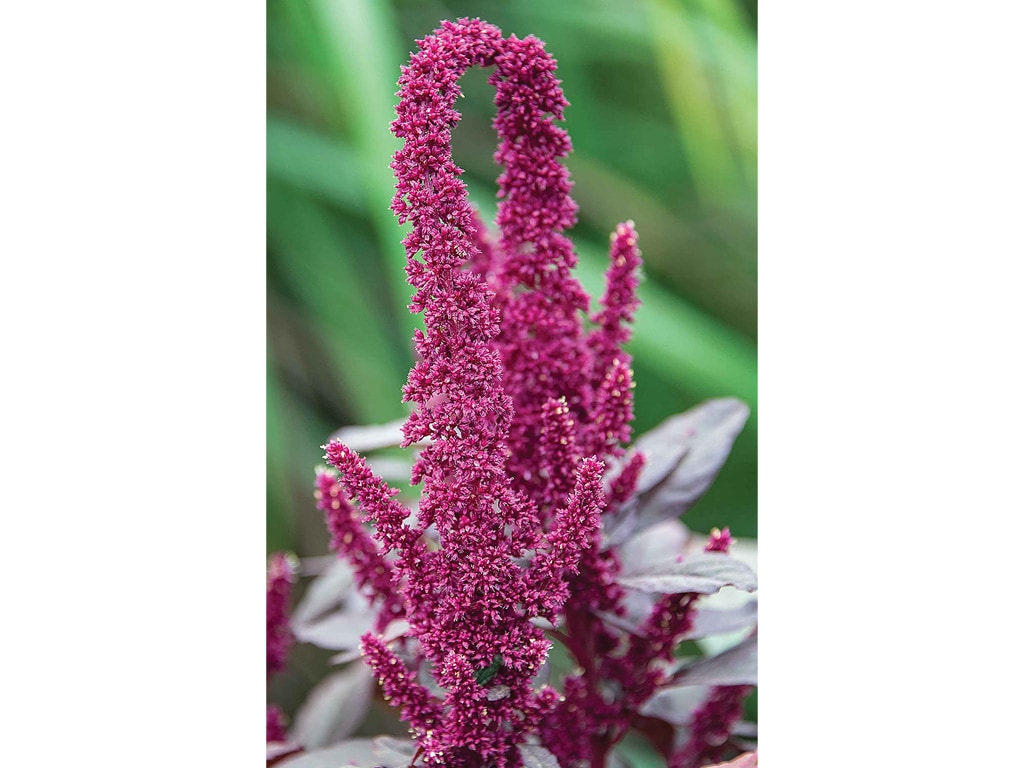Agriculture, Education June 01, 2025
Living Lab
The Farm + Food Lab shows off the OG OC.
by Steve Werblow
Visitors to Irvine, California's 1,300-acre Great Park have plenty to keep them busy, from sports fields to concert venues to jogging trails. One of the park's gems is a 1.5-acre wonderland of crops that thrive in the subtropical sun of the Los Angeles Basin.
Each year, 10,000 to 12,000 visitors visit the Great Park's Farm + Food Lab, where they can wander meandering paths, duck under massive gourds hanging from trellised vines, and squeeze into a circle of banana palms.
"It's a little bit of a 'chaos garden," but that's intentional," laughs A.G. Kawamura, an Orange County farmer who helped the City of Irvine and local Master Gardeners develop the Farm + Food Lab site in 2012.
"The City of Irvine has always been forward-thinking on embracing edible landscape concepts," says Kawamura, who had helped create an Incredible Edible Park in the city years earlier.
The Farm + Food Lab has a similar goal, explains Kawamura: "Wouldn't it be great if the average community member could show up and learn how to transform their own front yard or backyard into an edible landscape?"
Above. Carina Lavin is passionate about water conservation. Dragonfruit thrives at the Farm + Food Lab. A banana flower hints at Orange County's subtropical climate. Valeria Esqueda gathers insight on crops and wild plants from the experiences of family and elders. Bottle gourds are an ancient crop with deep cultural ties to Latin American communities in California and nations to the south. The Farm + Food Lab's amaranth is as nutritious as it is beautiful.
Dedicated. In 2018, a non-profit Kawamura founded—Solutions for Urban Agriculture (SFUA)—took on day-to-day management of the Farm + Food Lab. Four SFUA employees staff the project, maintaining a wide range of annuals, perennials, vines, and trees and hosting individual visitors and a wide range of groups each year.
"Our outreach includes field trips for at least 50 local schools, hands-on gardening and farming classes that engage over 1,000 community members, and plant exchanges that attract around 600 local gardeners," says Ryan Yamauchi of SFUA.
Hands-on experiences for 150 autistic community members through Dreams of America, as well as groups that emphasize wellness, addiction recovery, Spanish immersion, and more use the Farm + Food Lab as a center for all sorts of learning.
Lab farmers Carina Lavin and Valeria Esqueda have taken a special interest in crops that reflect the past, present, and future of southern California agriculture.
"We have a really big focus on cultural seeds and climate adaptive seeds," says Lavin, noting that summer temperatures can reach over 105 degrees Fahrenheit. "As it's getting hotter, how do we grow things that are adaptive, or more drought-tolerant?"
So in addition to the herb garden, the exotic fruits, and the elegantly espaliered apple trees, Lavin and Esqueda are planting a milpa. The milpa is an ancient farming strategy from Mexico, an intercropped community of corn, beans, squash, sorghum, amaranth, and other crops. They try seeds from East Africa, varieties from Mexico and the Southwest, and other hot-climate plants. They are also experimenting with planting dates.
"We are trying to farm corn in February now, because that's when the rain comes," says Esqueda. "With our dry farming, we're trying to farm more with the climate pattern here."
Moving. A new Great Park plan calls for the project to move to a 25-acre parcel in 2027. Kawamura envisions a farm-to-table demonstration center with indoor and outdoor learning spaces for cultivating and culinary experiences. In his plan, all the plants in the landscape—which is slated to be renamed Full Circle Farm—produce food.
"Instead of boxwood hedges, our thought is to create tea hedges and harvest the tea leaves," he says. "A blueberry bush looks like a lot of other bushes in the landscape, but you can get a harvest off of it annually. A lot of succulents are edible, and all sorts of lettuces, chard, herbs. You want to sit down and have a picnic there. You want to wander around and see things."
Not just see: learn. The Farm + Food Lab has plenty to teach about both plants and people.
"There's a lot of culture that people forget comes with ag," says Esqueda. "It's agri-culture." ‡
Read More

AGRICULTURE, EDUCATION
Cotton Gin Clean Slate
Tornado forces choice of rebuild or relinquish.


